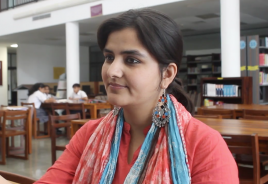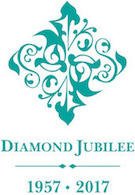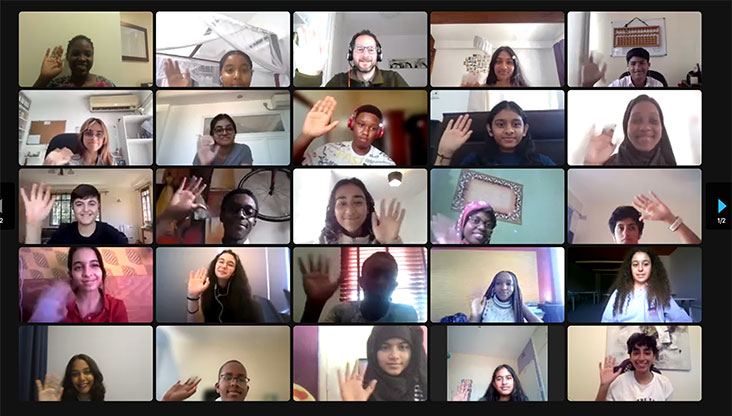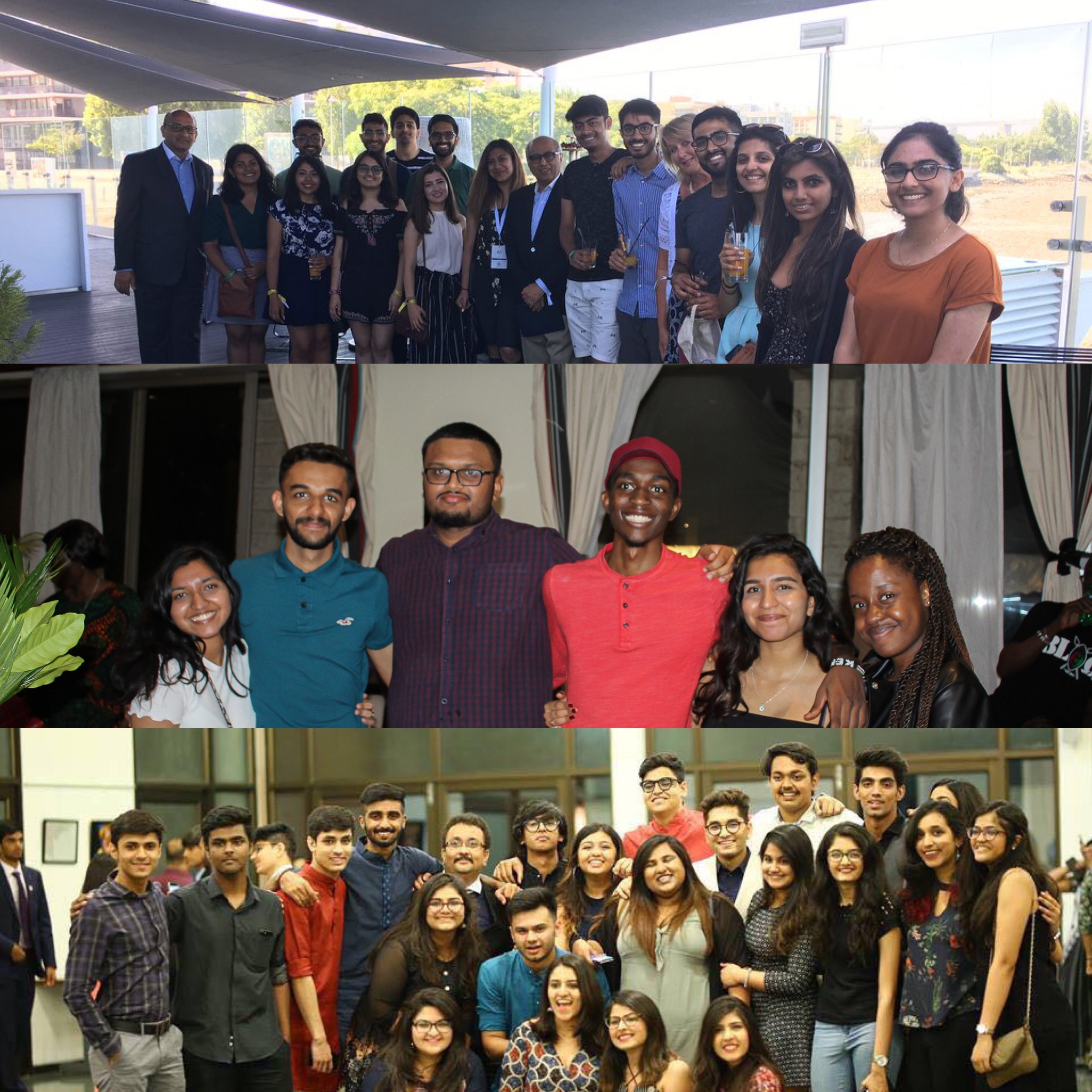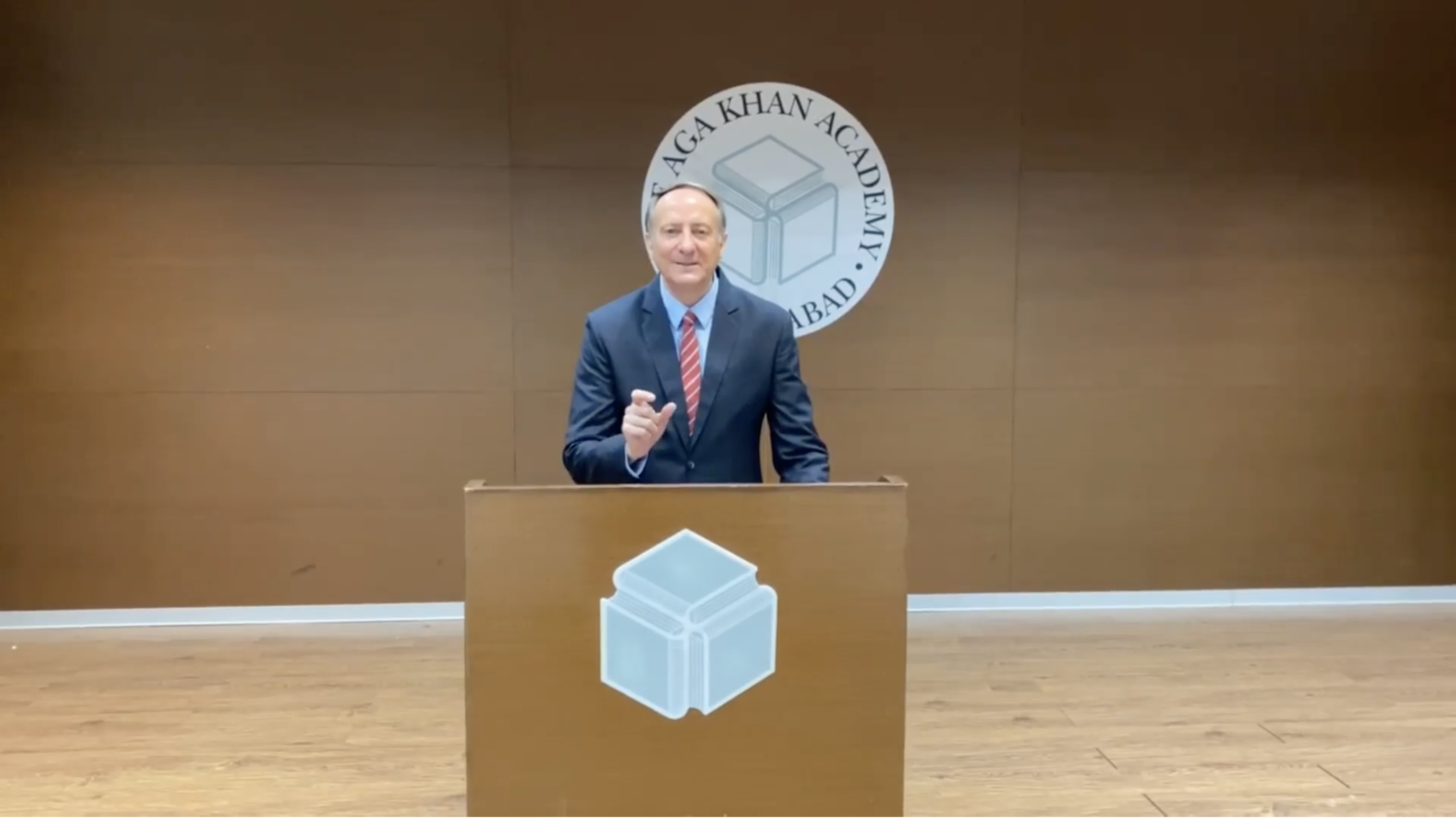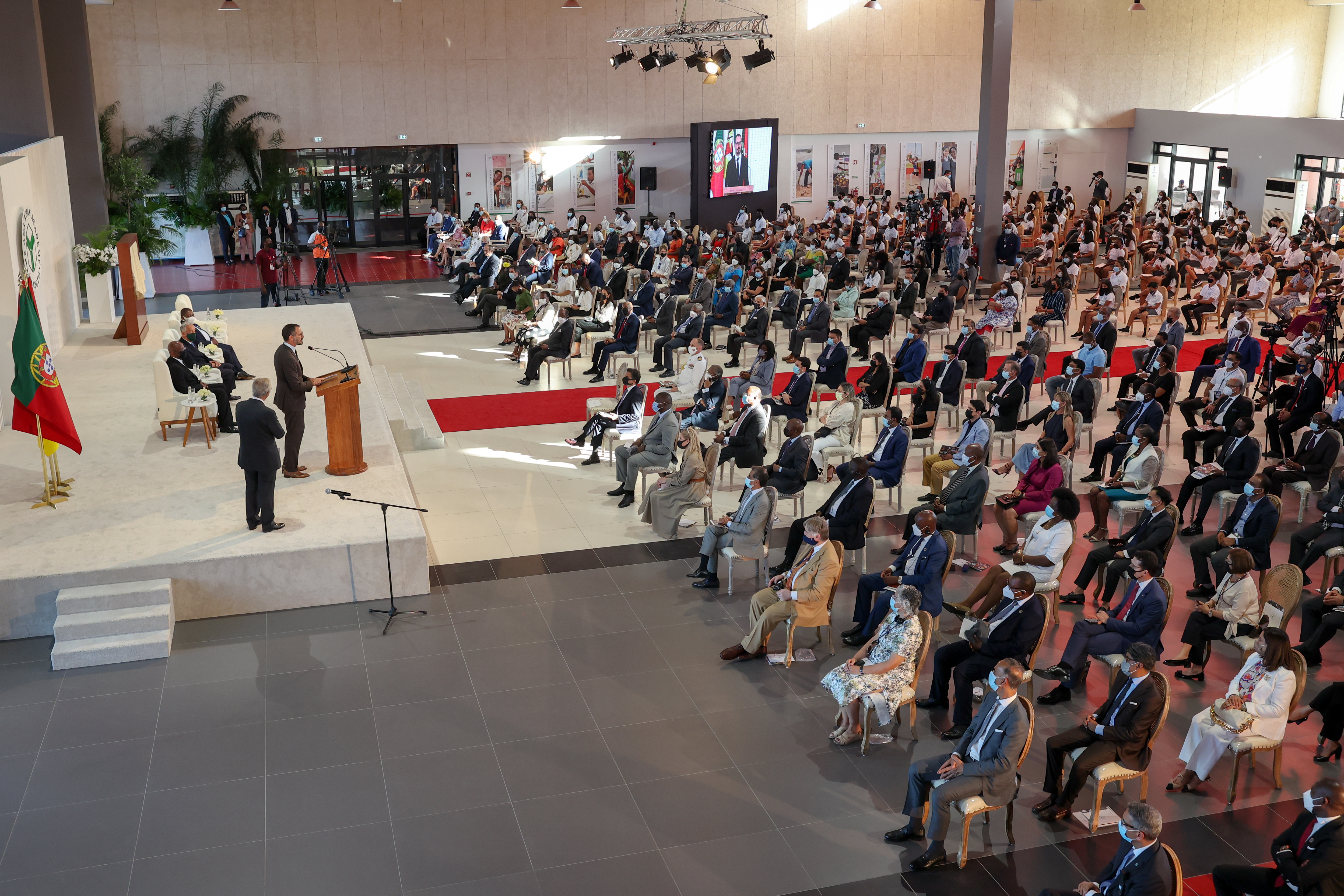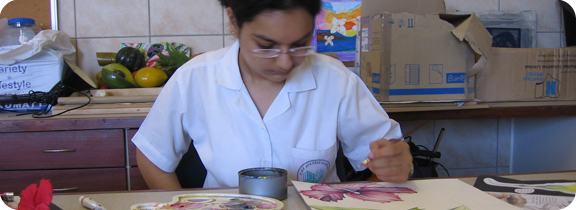
International Baccalaureate
The academic programme at the Aga Khan Academies was developed following the principles of the International Baccalaureate (IB), a world-class educational programme that emphasises rigorous, consistent schooling aligned to international standards. As a result, the Academies' Learner Profile exemplifies students and faculty that are open-minded, principled, reflective and inquiring individuals.
The International Baccalaureate programme provides international standards of evaluation, allowing students to pursue post-secondary education at world-class institutions of their choosing, with the skills for independent, creative thought and inquiry. It has become the curriculum of choice at international schools throughout the world.
The IB has come to be known not only for academic excellence but also for promoting pluralism – an understanding and appreciation of other cultures, languages and points of view.
The IB originated in Switzerland when teachers at the International School of Geneva, working with schools in Asia, Europe and the Americas, created the IB Diploma. The programme is administered by the International Baccalaureate, a non-profit institution based in Geneva, Switzerland.
Through its Primary Years (nursery school to year 5), Middle Years (years 6–10), and Diploma (years 11–12) Programmes, the focus is on creating a globally relevant education, with the integration of local contexts. Additionally, students at each Aga Khan Academy are instructed in both English and the national language, so they are able to work within their communities as well as around the world.
For more information on the International Baccalaureate, please visit the IB website.
IB 50th anniversary Academy film shoot – Thursday 17th August
World media giant ITN is profiling the Academies as one of 12 educational institutions from around the world as part of the IBO 50th anniversary celebrations. Students and staff will be involved in interviews and filming.
IB 50th anniversary Academy film shoot – Tuesday 19 September
World media giant ITN is profiling the Academies as one of 12 educational institutions from around the world as part of the IBO 50th anniversary celebrations. Students and staff will be involved in interviews and filming.
Signing ceremony to renew the partnership between the Academies and the Province of Ontario
On 29 April 2018, the Province of Ontario and the Aga Khan Academies network of schools formally extended their partnership on mutually beneficial education projects.
Photos by Ibrahim Meru and Nalina Sacoor.
Maryam: Becoming a better teacher
The Teacher Preparation Programme (TPP) is one of the Aga Khan Academies’ landmark teacher development initiatives. In this interview with Kamini Menon at the Aga Khan Academy Hyderabad, TPP participant Maryam talks about the TPP’s unique aspects and her experience with the programme.
Please tell us a little bit about your background.
I’m a part of the Teacher Preparation Programme in Hyderabad. This is my fifth year in teaching, and previously I worked for a Teach for India school in Delhi teaching 48 amazing girls. When my fellowship with Teach for India was over, I applied to the Academy, and here I am.
What made you join the Academy and inspired you to come here?
My previous experience as a Teach for India Fellow made me feel like I wanted to something more than just being a teacher. So I was looking for an option post-fellowship that shared a similar mindset or similar values. When I read about the Academies, the vision really interested me as well as the whole inclusive policy: giving a chance to anyone coming from any background and making sure that we provide them this idea of excellence in education. That was something that really inspired me, and so I joined the Academy.
Talk about the Teacher Preparation Programme (TPP) and where you are in that journey.
The Teacher Preparation Programme is the initiative of the Academies to make sure that we have home-grown teachers who become IB educators. This is a great initiative. This is my ninth month into the programme, and I teach in a classroom, I research, and do a lot of things at the same time. I am getting mentored by experts and improving my pedagogy every day.
Can you explain the structure of TPP? How it is organised and what does it involve?
The programme is an intense 18-month long process, and you do things in phases. In Phase One, we were in a classroom, paired with a mentor, teaching 20% of the time. Now, we are in Phase Two, and I have to teach 50% of my time in a classroom. But it’s not just the teaching. We also have to write an action research paper, which is crucial to the whole programme. Another thing which is important is the Problem-Based Learning Sessions, which are a great way to reflect on who you are as a person, not just as a teacher. In these sessions, we meet three times in a week, and we bring together all our research findings and what we have collected, and we progress to the next learning target. We work on this in groups, and then we get to reflect and apply that in a classroom at the same time.
Can you share two aspects of the programme that you find particularly unique or helpful?
For me, the most interesting part was problem-based learning. It takes a lot of patience to think in a broader way about a problem. The problem sets are given to us – then you create your learning targets, and the whole group researches with different objectives. That makes you really responsible, that improves your research skills. At the same time, it teaches you how to collaborate with members of the group. Another part that I find really interesting and at the same time challenging is my action research piece. It’s not just research; the action part is the most challenging part because you have to reflect on your own practice. For example, I am doing something on inquiry right now, but it’s not just inquiry – it’s “why inquiry in an IB classroom?” or “why even think of those big theories?” So, this has made me more reflective, it has made me more thorough with my work. At the same time, if and when I fail, it’s alright to seek advice and it’s alright to go back to my mentor to ask why this did not work in a classroom. Both problem-based research and the action research, I find that these are pushing me to become a better teacher.
How would you evaluate the model of mentorship that’s in place within the TPP?
Sandra is our mentor, and she is a really experienced Ontario teacher. She has streamlined the programme, she gave it more structure and depth. When you work with Sandra, you are not intimidated by her. You are working with an expert who knows so much, but at the same time she gives you a chance to really apply yourself. She is a mentor for me when I am doing anything in the classroom – she is always providing me with constant feedback on my pedagogy and on my action research paper. Even in the intense Problem-Based Learning Sessions, where it gets a little crazy at times, Sandra is always there to nudge you in the right direction so you come to a conclusion.
How do you and your colleagues in the TPP work together and collaborate?
We are a very diverse group. Sitting with all of them has made me a better teacher in so many ways. It is not easy to admit sometimes that you don’t know things, but I get to learn from these people because their experience, our discussions, and the help we give each other is really great. We also collaborate outside the classroom – for example, if I have a doubt or find something challenging, I go to one of these colleagues and ask for their help. They are always there for me. We really push each other to reflect, to ask the right questions, which makes you think.
Can you talk more about the process of reflection that you have in your TPP group?
For us, reflection is about making yourself vulnerable in front of the whole group. It is not easy – it is not at all easy. We don’t reflect on a superficial level; we have to really apply ourselves in the entire process. When create our reflections, we have to share them with the whole group – and the group knows and understands who you are and gives you feedback. They push you to think along certain lines, and our mentors force us to think about the way we think – it becomes more about metacognition. The whole idea of learning from someone is that you have to be vulnerable and sometimes even fail, and then admit that you failed. When you draft that experience into a reflection, it makes you a better teacher. And definitely a better person.
How do you think the TPP has made you a better person in actual fact?
The way the TPP is designed, you become a reflective practitioner – that’s the goal! You teach in a classroom and you know that it’s not just a physical space, it’s much more than that. You cannot teach in isolation – you have to collaborate with other people, you have to go and ask for help. At the culmination, you really will become a better teacher. It’s a rigorous process, it’s an intense process, it’s a very reflective process. But the goal is that, ultimately, you will be the kind of teacher you want to be as well as an effective teacher.
Can you give us an example of how you’ve applied something you’ve learnt through the TPP in a classroom setting?
Right now, I am doing an action research, and a huge chunk of this is based on inquiry-based learning in a classroom. I’m teaching grade 6, and the unit I was dealing with was “did they live like us?” It is a lot about civilisations and the way people lived and interacted with their environment. All the research that I did during the Problem-Based Learning Sessions and my action research, I applied it in this classroom setting. I created the lesson plan and then got the feedback from my mentors. Then it gave me a chance to reflect on my practice: sometimes I tend to go a little overboard, and I got to see if my plan would work out. This is how you become a better teacher.
Is there anything else that you’d like to add about the TPP?
I’ll say, for the whole process, you have to be very open. You have to be open-minded to get into this process. It’s not easy just to acknowledge that you’re going though 18 months of training – you might feel intimated, or that your prior experience doesn’t matter. But that’s not the point. The point is to become a better teacher. If that is your goal, then this programme will work for you. The way this programme is designed is rigorous and beautiful. The most important point depends on you: what do you want to take away from this. And there is a lot, if you are really open to exploring.
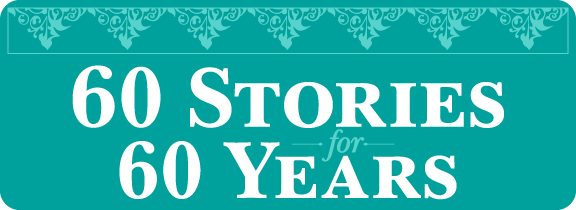
60 Stories for 60 Years
To meet these inspiring individuals, check here for a new story each week during the Jubilee year. On social media, you can like us on Facebook and follow us on Twitter @AKAcademies.
|
Alumna, Aga Khan Academy Mombasa |
Students, Aga Khan Academy Mombasa |
|
Alumna, Aga Khan Academy Hyderabad |
Teacher, Aga Khan Academy Hyderabad |
|
Student, Aga Khan Academy Maputo |
Staff, Aga Khan Academy Network |
|
Alumnus, Aga Khan Academy |
Student, Aga Khan Academy Hyderabad |
|
Teacher, Aga Khan Academy Hyderabad |
Student, Aga Khan Academy Mombasa |
|
Student, Aga Khan Academy Mombasa |
Alumna, Aga Khan Academy Mombasa |
|
Alumna, Aga Khan Academy Mombasa |
Alumnus, Aga Khan Academy Hyderabad |
|
Alumna, Aga Khan Academy Hyderabad |
Alumna, Aga Khan Academy Mombasa |
|
Student, Aga Khan Academy Hyderabad |
Alumnus, Aga Khan Academy Mombasa |
|
Student, Aga Khan Academy Hyderabad |
Teacher, Aga Khan Academy Maputo |
|
Alumna, Aga Khan Academy Hyderabad |
Student, Aga Khan Academy Mombasa |
|
Student, Aga Khan Academy Mombasa |
Staff, Aga Khan Academy Hyderabad |
|
Student, Aga Khan Academy Mombasa |
Teacher, Aga Khan Academy Maputo |
|
Student, Aga Khan Academy Mombasa |
Teacher, Aga Khan Academy Maputo |
|
Teacher, Aga Khan Academy Mombasa |
Alumnus, Aga Khan Academy Hyderabad |
|
Teacher, Aga Khan Academy Maputo |
Student, Aga Khan Academy Hyderabad |
|
Student, Aga Khan Academy Mombasa |
Staff, Aga Khan Academy Hyderabad
|
|
Alumnus, Aga Khan Academy Mombasa
|
Staff, Aga Khan Academy Mombasa |
|
Student, Aga Khan Academy Mombasa |
Parents, Aga Khan Academy Mombasa
|
|
Alumna, Aga Khan Academy Mombasa |
Alumna, Aga Khan Academy Mombasa |
|
Teacher, Aga Khan Academy Maputo |
Alumni, Aga Khan Academy Mombasa
|
|
Alumna, Aga Khan Academy Hyderabad |
Student, Aga Khan Academy Mombasa |
|
Alumna, Aga Khan Academy Hyderabad |
Alumna, Aga Khan Academy Mombasa
|
|
Alumnus, Aga Khan Academy Mombasa |
Student, Aga Khan Academy Mombasa |
|
Alumna, Aga Khan Academy Mombasa |
Student, Aga Khan Academy Hyderabad |
|
Teacher, Aga Khan Academy Maputo |
Student, Aga Khan Academy Mombasa |
|
Teacher, Aga Khan Academy Hyderabad |
Alumnus, Aga Khan Academy Mombasa |
|
Felix Ngumo |
Samson Suhas |
|
Sazil Ramani |
Karishma Bhagani |
|
Alumnus, Aga Khan Academy Mombasa |
Khushboo Khoja |
